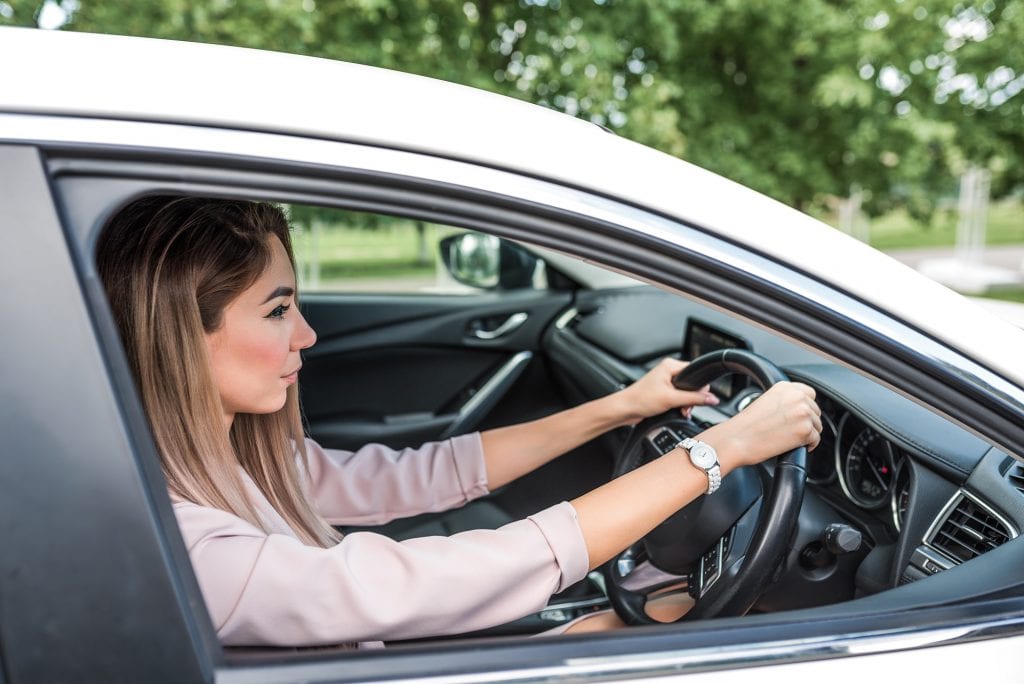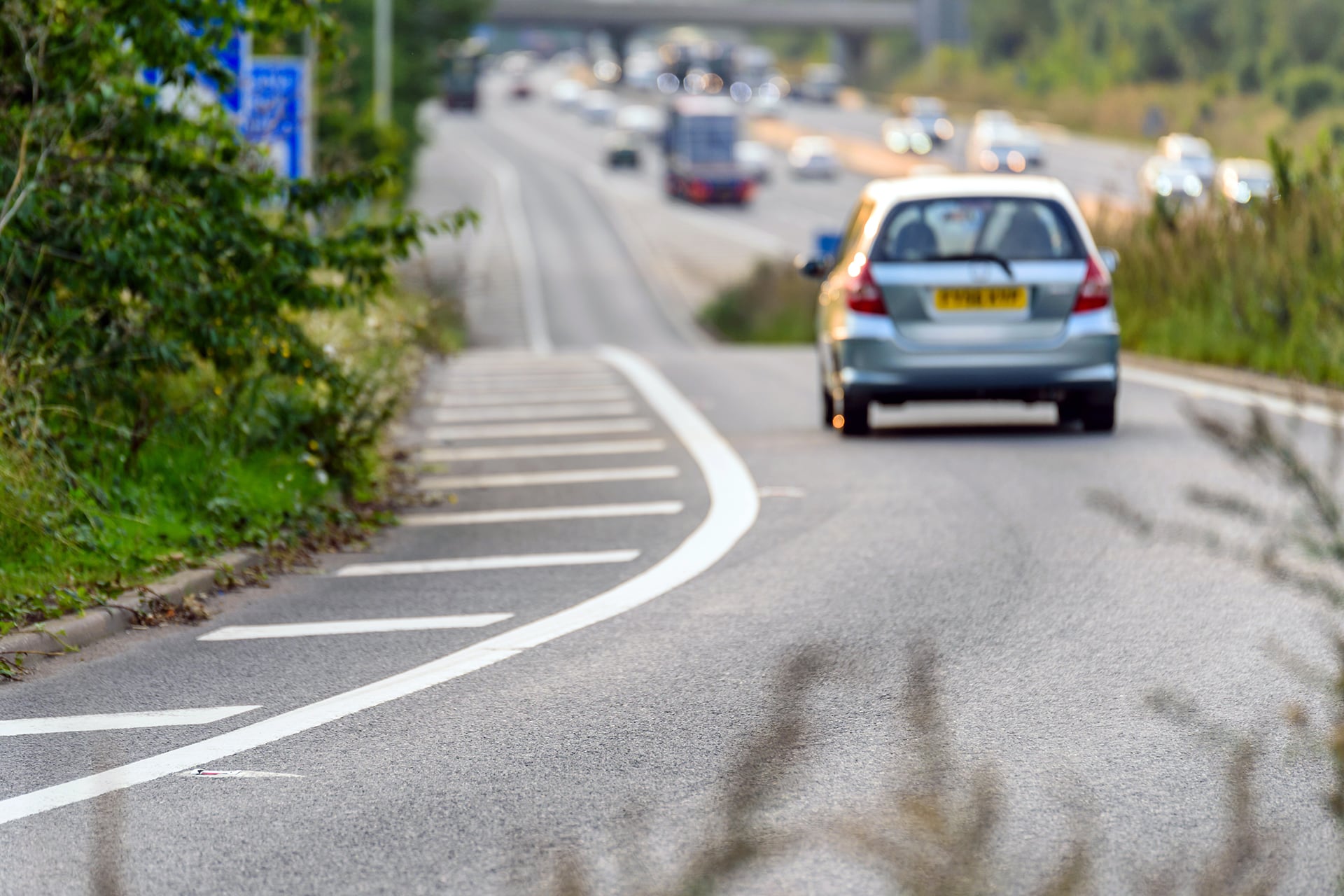Getting car insurance is essential but as with most professions, there are a number of very specific words and phrases that mean something to those in the profession but little to those outside. To help you in your quest to obtain vehicle cover we have put together a car insurance glossary of terms and jargon so you can understand “what is what” in plain English.
From ‘approved repairer’ to ‘no claims discount’, we’ve translated some of the most important vehicle insurance terms to help get you on the road as quickly as possible!
Car insurance terms explained:
ABI group
The Association of British Insurers (ABI), the UK’s insurance trade association, categorises all cars, makes and models into a list from 1 to 50, 1 being the lowest and cheapest to insure and 50 the highest and most expensive. The number reflects the risk they represent, i.e., high value, fast acceleration, more likely to be stolen /crashed etc.
Act of God
A disaster resulting from a natural cause, where no driver is to blame and the event could not have been prevented such as a flood or other natural disaster. Your policy documents will explain in more detail what type of events are not covered (see “Exclusions”).
Algorithm
A set of rules used to calculate insurance premiums using information about the driver, their vehicle and other relevant information. These are usually very complex and performed by a computer.
Amendment
A change to your original insurance policy. Also known as Mid Term Adjustment.
Approved repairer
A company, usually a garage, approved by the insurer for the damage assessment, repair and/or storage of the car. Using an approved repairer to fix damage to your vehicle usually means your insurer will cover the full costs of repair under your policy, as these have been agreed between the insurer and approved repairer in advance.
Betterment charge
This is a charge made when a policyholder decides to replace a lost or damaged item with something that is ‘better’. The policyholder is responsible for the difference between the original vehicle’s value and the cost of the new vehicle.
Breakdown Cover
Breakdown cover is an add-on product you can choose to include which offers vehicle assistance in the event of a breakdown that leaves the driver and/or passengers stranded. For further information please read the Breakdown IPID.
Broker
An independent insurance company or “intermediary”, that arranges and sells insurance on behalf of different insurance companies. They are separate from your insurer, but often provide services in relation to your policy.
Business use
For non-personal driving at work, you must have business cover. This applies if you run an errand for your boss, regularly use your car to commute or undertake more formal business travelling. Driving on social, domestic & pleasure (SD&P) at work for any work-related duties means you are not covered on your insurance.
Cancellation
Ending your insurance policy. This can be done before the policy starts or during the policy. Further information is shown in your policy documents.
Certificate of insurance
A document provided by your insurer as proof you have motor insurance in place. Without a certificate of insurance in place, it is illegal to use your vehicle on a road.
Claim
A formal request by a policyholder to an insurance company to inform them loss or damage has occurred, and request coverage under their policy.
Class of use
Car insurance classes of use describe how you use your car. For example:
- Social, Domestic and Pleasure with Commuting (SDP+C) to and from a permanent place of work.
- Social Domestic and Pleasure with Business (SDP+B) this will enable you to drive a vehicle as part of your job or to drive to more than one site for work.
You need to accurately describe how you use your car to ensure you are insured for the driving you are doing.
Comprehensive coverage
The most complete level of car insurance cover, which usually covers you for:
- Injuries to other people.
- Damage to other people’s property.
- The use of a trailer, while attached to your car.
- Fire damage and/or theft.
- Damage to your own car.
- Medical expenses, up to a stated limit.
- Loss of or damage to personal effects in the car, up to a stated limit.
Policy features vary between insurers, so always check them before you buy.
Continuous Insurance Enforcement (CIE)
This is a government rule that requires you to have car insurance for your vehicle at all times if you use it on roads or in public places – you’re only exempt if the vehicle is kept off-road and declared as SORN to the DVLA. Click here for more information.
Conviction Codes
Motoring conviction codes are defined by the DVLA (e.g. SP30). If you commit a driving offence you can be fined and/or given penalty points on your licence. The more offences you commit the more points will be applied. For more information refer to the DVLA here.
Convictions (Spent & Unspent)
Criminal convictions lapse after a period of time, known as the rehabilitation period, which results in them being removed from a person’s criminal record. At this point convictions transform from “unspent” to “spent”. The rehabilitation period varies depending on the age of the offender and the sentence they were given.
Further information and also how to check if you need to tell someone about your criminal record can be found on www.gov.uk.
Cooling Off period
A cooling off period is a term of an insurance policy that provides the ability for you to cancel a policy within 14 days of the date of purchase, if you decide you no longer require the cover. However this term does not cover insurance policies of under 31 days, which do not have a cooling off period.
Driving Licences
Is a permit that is requested from the DVLA to enable a person to learn to drive (Provisional licence) or for a person who has passed a driving test to drive certain vehicles (Full Licence)
There are different classes of driving licences, click here to find out more information.
Dual Insurance
Dual or double car insurance is when the same person or car has the same cover on more than one policy at a time.
Duty of Disclosure
You have a duty to tell your insurer if there are any changes that may affect the terms of your policy, such as if you move address, change your name or replace your vehicle. If you don’t, your policy could be rendered invalid.
DVLA
The Driver and Vehicle Licencing Agency (DVLA) is a government agency that is responsible for maintaining a database of drivers in Great Britain and a database of vehicles for the whole UK. For more information click here.
Endorsement
A change made to an existing insurance policy during the term of cover that adds to or restricts the original cover terms e.g. change of vehicle.
Excess
The amount of every claim which must be paid by the policyholder. This is usually deducted from a final claim settlement. You agree to the amount when you take out your car insurance policy.
Exclusions
These are the things that your insurer won’t cover. It is important you understand what is excluded, as your insurer will not pay out claims for a type of loss or damage which is excluded by your policy. You should check your policy documents for more information.
Fault claim
Damage or loss where you are considered to be to blame, or where the insurer can’t recover costs from someone else. Note: if your vehicle is damaged while parked, by someone who can’t be identified, this will usually count as a fault claim.
Financial Conduct Authority (FCA)
The Financial Conduct Authority is a UK regulatory organisation, independent of the UK government. It’s role is to make sure the financial services sector (including insurers) runs well and customers are protected from unfair, unclear and misleading treatment. Important rules that insurance companies must follow, likes complaint handling rules, are set by the FCA.
Force Majeure
See “Act of God”
Green Card
A green card is a document which is required for driving in some countries outside the EU/EEA. It is provided by your insurer and proves that your motor insurance provides cover for the country you are driving in.
Immobiliser
An electronic security device to prevent thieves from stealing a car even if they gain entry. The immobiliser forms part of the engine control unit (ECU), and prevents the car from being started unless it recognises the key.
Import / Imported Vehicle
Vehicles which have been brought into the UK, after being made to be sold in a country outside the UK.
Indemnity
Indemnity is when an insurer promises to cover you for a loss. Forms of indemnity include cash payments, repairs, replacement, and reinstatement. When indemnified, you should end up in the same position after a claim is resolved as you were before it, minus any excess you needed to pay.
Insurance Policy
The legal agreement between an insurer and a customer (or “policyholder”), which agrees a level of insurance, to be provided by the insurer to the policyholder in the event of loss or damage.
Insurance premium Tax (IPT)
Insurance Premium Tax (IPT) is a tax paid on all types of insurance policies. This tax will be included in the price of your car insurance premium, and will be identified in the payment breakdown when you purchase a policy. www.gov.uk
Insurer
A company that insures something or someone against loss or damage.
Knock-for-knock
An agreement between motor insurers to pay losses incurred by their respective policyholders, regardless of which driver is to blame.
Loss adjuster
A loss adjuster is an insurance industry expert who works on behalf of an insurer to investigate the cause of an incident, check the claim is valid and evaluate and agree the claim amount to fix the damage.
Main Driver
The person shown on the car insurance policy as the person who regularly drives the vehicle the most. Failing to be honest about the main driver on the policy is a form of insurance fraud.
Material fact
Any information that may influence either an insurer’s decision to offer you cover, or the premium they charge for it. If you leave out information which may influence a decision to offer cover, your policy may be invalidated.
Motor Insurer Database (MID)
The database holding all car insurance policies that the police and other insurers check against to see if there is a policy of insurance for a vehicle.
Named Driver
A named driver is a person who is added onto a car insurance policy so that they are included in the insurance cover.
No Claims Discount (NCD)
For every year that you don’t make a claim on your annual car insurance, you may be entitled to a No Claims Discount or bonus. The worth of this amount varies from insurer to insurer and is used to reduce the cost of the insurance premium.
No-fault claim
The opposite of a fault claim where you are not to blame for the accident.
Non Disclosure
A reduction in the cost of a person’s premium to reflect a claim-free period of driving. No claims discounts are common, but insurers are not obliged to offer them. (Also know as no claims bonus).
Period of Insurance
The period of insurance is how long the insurance policy lasts. You will find this information on your policy documents.
Policyholder
A policyholder is an individual who makes a legal agreement with an insurer for cover in the event of loss or damage. The policyholder usually pays the insurer for this cover. This payment is known as an insurance premium.
Pro-rata Refund
Pro-rata refund is an approach to refund calculation, that takes the total number of days cover you requested and divides it by the number of days of cover you originally purchased to give a daily amount. You are then refunded the number of days remaining multiplied by the daily amount.
Proportional Refund
Proportional refund is an approach to refund calculation, that will accurately calculate how much you would have been charged for the actual period for which you held cover (from policy start until the day of cancellation). You will then be refunded the difference between what you originally paid and this amount.
Premium
This is the amount you will pay for an insurance policy.
Registered keeper
The person who drives the vehicle and generally has the vehicle in their possession and uses it day to day. The registered keeper is responsible for taxing it, making sure it has a valid MOT and insuring it. They will also be the first point of contact for any speeding tickets, parking fines or police enquiries related to the vehicle.
Note: This is not always the person who appears on the vehicle’s V5C logbook which is why it states ‘This document is not proof of ownership’.
Settlement
The amount your insurer pays out for a claim.
Social, Domestic & Pleasure (SD&P)
Cover for social, domestic and pleasure uses of a vehicle. It does not cover driving for work purposes (known as business cover). Our SD&P cover includes commuting to a single place of work.
Underwriter
An underwriter is an insurance company. They decide whether to accept or decline you when you apply for insurance. If you are accepted, they will then calculate the price at which they are willing to offer you an insurance policy.
Uninsured losses
Any losses not covered by your insurance policy, e.g. your excess, a loss of earnings, or compensation for an injury suffered in an accident.
How to get temporary car insurance

Now that you are more familiar with the terms involved with car insurance, you can start thinking about securing some for your vehicle! If you are planning a one-off trip or only need car insurance for a short period of time, picking up some temporary car insurance or one day car insurance will be a shrewd move indeed.
How do you get temporary car cover? It’s simple! Just follow these three simple steps:
- fill in our quote form with your name, GB driving licence number, UK address, date of birth, occupation, and the registration number of your vehicle
- we will give you a price depending on the duration you need to be covered for and when you want the policy to begin
- buy your insurance! All you will need is your credit or debit card details.
It really is that simple. Then you are ready to hit the road with complete peace of mind.
READ ALSO: What do you need to insure a car?



